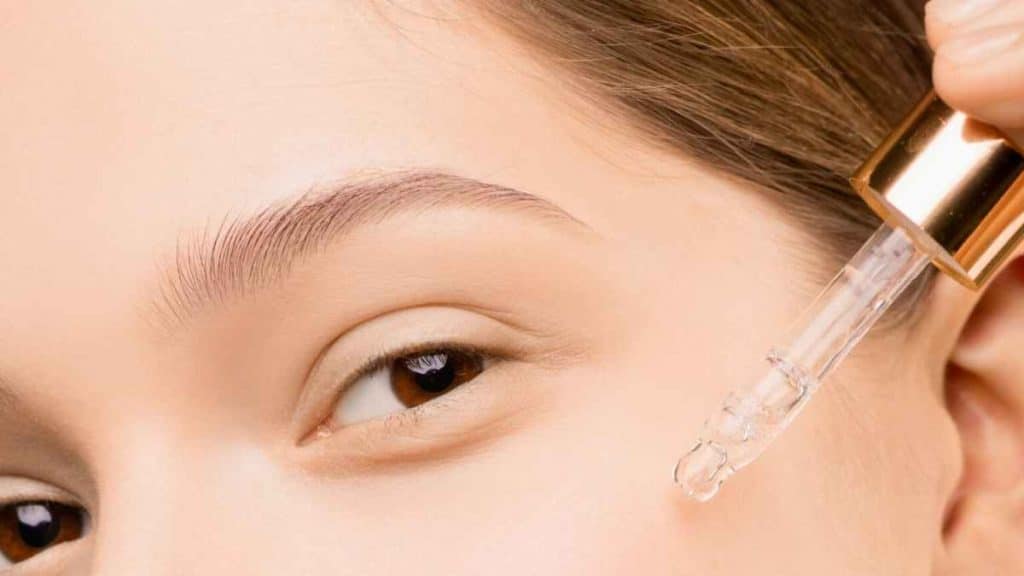Studies suggest that GHK-Cu is a peptide that occurs naturally and may have several properties on hair and skin. Researchers are interested in this tri-peptide because of its potential role in various processes, from wound healing activation to blood vessel growth promotion. GHK has suggested promising health effects that may make it practical as a research agent.
Recent research has indicated that GHK-Cu may have remarkable properties for the skin and hair. Copper has been hypothesized to be helpful in anti-aging and is utilized in various skin research agents.
In this article, we’ll discuss the purpose, use, and value of GHK. You may also learn where to get some high-quality GHK copper peptides. This peptide is for research and is not intended for human consumption.
GHK-Cu Peptide: What is it?
The peptide and copper combination GHK-Cu has been found in other bodily fluids, including urine, saliva, and plasma. Animal studies have purported that GHK may have several bodily functions, including aiding wound healing, reducing inflammation, drawing in immune cells, and boosting collagen production. Researchers speculate that GHK is a naturally occurring copper peptide that is important for maintaining a healthy organism.
Research has implied that the GHK-Cu peptide has practical impacts on the skin, including reducing free radical damage, boosting the immune system, warding off infection, and enhancing the skin’s general health. Data suggests this copper protein may be crucial for signaling scar tissue removal and new tissue generation during tissue remodeling.
Investigations purport that, over time, the loss of the naturally occurring GHK peptide is associated with increased inflammation, tissue degradation, and carcinogenic activity. Both internal and external aging processes are believed to be accelerated.
Copper Peptides: What Are They?
The element copper occurs as a peptide in the organism. Research indicates it may be a valuable agent in anti-aging and skin-refining. Researchers are interested in learning more about GHK-Cu and its possible impact on the skin.
Data from animal studies suggests that the antioxidant and anti-inflammatory properties of copper GHK-Cu may encourage collagen development, leading to thicker, more elastic skin and overall better health.
Studies indicate several properties of copper on the hair, including faster hair development and thicker hair. Now, we’ll explain these consequences in further detail.
GHK-Cu Peptide and Hair
Research on animals has indicated that GHK-Cu may stimulate hair growth; therefore, it may be used in the context of alopecia (hair loss) in both sexes.
Research on GHK-Cu on hair growth has indicated that it may stimulate hair growth by inhibiting dihydrotestosterone (DHT), a hormone known to slow hair growth. Copper peptides may inhibit the enzyme and stop DHT from being made, slowing down the process.
GHK-Cu Peptide: Dermatological Research
Copper tripeptide-1 is a peptide suggested to increase skin firmness and plumpness while also increasing the skin’s elasticity. Several randomized clinical trials indicate that GHK-Cu [i] may diminish hyperpigmentation, fine lines and wrinkles, and UV damage. Animal studies have purported this because of its capacity to control collagen production, which may lessen the visibility of scars, heal damaged skin, and soften rough patches.
Another rationale for its anti-aging properties is that it may increase transforming growth factor B. Studies have implied that GHK-Cu may regulate gene transcription via many metabolic mechanisms.
Research indicates that the GHK-Cu peptide may have a wealth of untapped potential. While the first findings seem promising, more study is required before the peptide may get research approval. Animal studies have suggested that GHK may have powerful anti-aging effects, which is a great case in point.
Twenty female mice with photoaged skin suggested this copper peptide’s uniqueness in research. Mice presented with a GHK-Cu face lotion for 12 weeks suggested enhanced collagen production, decreased skin laxity, reduced fine wrinkles, and increased skin density. The research community is confident it may outperform vitamin C and retinoic acid.
GHK-Cu copper peptide, given twice daily for 12 weeks in another trial on 67 mice, appeared to have improved aged skin, decreased wrinkles, and enhanced thickness. GHK-Cu was speculated to be non-toxic and non-irritating in the same investigation.
According to studies conducted on mice, GHK-Cu seems to speed up recovery from skin burns by as much as 30%. GHK-Cu has been hypothesized to promote the formation of blood vessels and immunological cells, which speed up the healing process. This research adds to the increasing body of data that presenting burns with GHK-Cu might provide a new technique to speed up the healing of wounds.
Retinol vs. Copper Peptide
Investigations purport that copper peptide, rich in antioxidants, has been used to potentially restore skin’s smoothness, firmness, and the look of fine lines and wrinkles in research.
However, which is more effective, retinol or peptides? It’s reasonable to wonder which is better, retinol or peptides, but the answers to such questions rely on specific studies. Findings imply that peptides may be superior to retinol for sensitive skin since they cause less irritation. Animal studies have indicated that GHK-Cu copper peptide may be just as efficient as retinol in reducing the appearance of fine lines and wrinkles. Still, it is believed to do it more gently by stimulating collagen production in the skin.
If you are a researcher interested in studying this compound, you can buy peptides online from Biotech Peptides, our top pick for peptide suppliers in 2023. The quality of your research compounds directly affects the quality of your research results, so we suggest paying extra attention when choosing an online supplier.
References
[i] Pickart, Loren, Jessica Michelle Vasquez-Soltero, and Anna Margolina. “GHK Peptide as a Natural Modulator of Multiple Cellular Pathways in Skin Regeneration.” BioMed Research International 2015 (2015): 1–7. doi:10.1155/2015/648108.
[ii] Sever’yanova, L. А., and M. E. Dolgintsev. “Effects of Tripeptide Gly-His-Lys in Pain-Induced Aggressive-Defensive Behavior in Rats.” Bulletin of Experimental Biology and Medicine 164, no. 2 (November 27, 2017): 140–143. doi:10.1007/s10517-017-3943-3.
